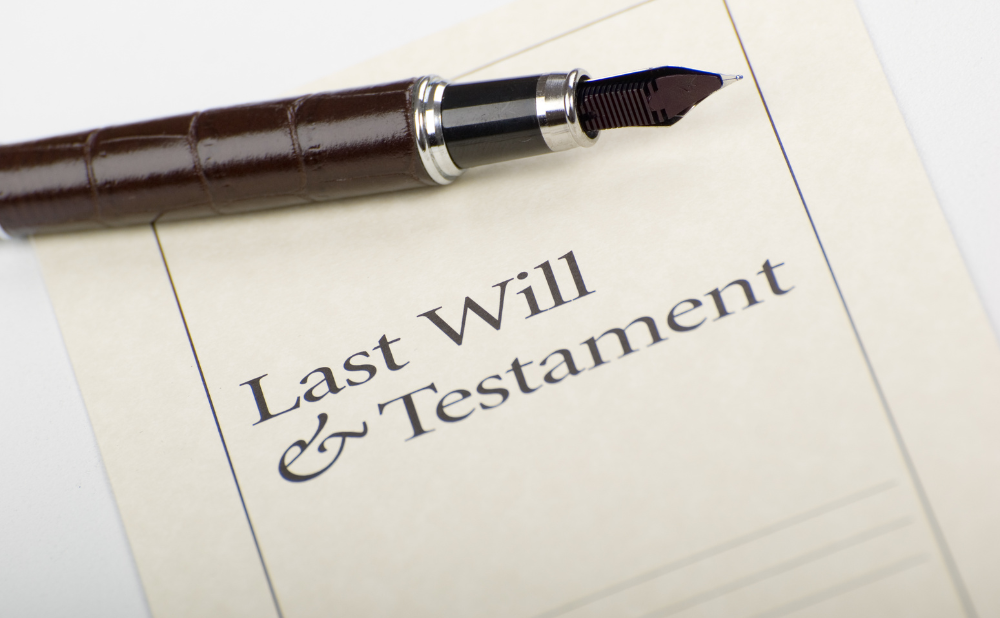Creating a will is an important step in planning for your future and protecting your loved ones. But, you may be wondering, “Do I need a lawyer to create a will in Pennsylvania?” This question often comes up when people start thinking about their estate plan.
This article explores the details to help you determine if engaging an attorney is the best choice for your unique life circumstances.
Understanding Wills in Pennsylvania
Before we discuss your burning question of “Do I need a lawyer to create a will in Pennsylvania?”, let’s start by defining a will. A will is a legal document that outlines how you want your assets distributed after your death. In Pennsylvania, the laws concerning wills, found within the Pennsylvania Consolidated Statutes Title 20, are relatively clear. You do not technically need a lawyer to create a valid will that is legally binding.
However, there are significant reasons why you might consider seeking professional legal services. An estate planning attorney can offer guidance specific to Pennsylvania law, ensuring your wishes are accurately reflected and legally protected. And, this can be particularly important for managing how property passes to your beneficiaries.
Legal Requirements for a Valid Will
For a will to be legally valid in Pennsylvania, several key criteria must be met:
- Age and capacity: The person creating the will (the testator) must be at least 18 years old and of sound mind. This means they must understand the purpose of the will and the effect it will have on the distribution of their property.
- Written document: The will must be in writing. Oral wills are not recognized under Pennsylvania law.
- Signature requirements: The testator must sign the will at the end of the document. If the testator is physically unable to sign, someone else may sign on their behalf, but only in the testator’s presence and at their direction.
- Witnesses: While Pennsylvania does not require witnesses for the will to be legally valid at the time of signing, having two disinterested witnesses, who do not benefit from the will, sign in the presence of the testator is strongly recommended. This can help prevent future challenges to the will’s validity and streamline the probate process.
Failure to follow these requirements may lead to the will being contested or declared invalid. If a will is found to be invalid, the estate may be distributed according to Pennsylvania’s intestacy laws, which may not reflect your personal wishes.
However, this summary is for general informational purposes only and does not constitute legal advice. Please consult a qualified estate planning attorney in Pennsylvania to ensure your will complies with state law and your intentions are properly documented.
What if You Don’t Have a Will? The Impact of Intestacy Law
Dying without a valid will is known as dying “intestate.” In such cases, Pennsylvania intestacy law dictates how your estate assets are distributed. These laws establish a predetermined hierarchy for your family members, such as your surviving spouse and children.
If you have a surviving spouse and children from that spouse, your spouse typically inherits a portion, and the children inherit the rest. If you have a surviving spouse but no children, or children from a previous relationship, the distribution rules under intestacy law change. The state’s plan might not align with how you would have chosen to distribute assets or provide care for your loved ones, especially minor children.
The probate court will appoint an administrator to manage your estate, and this process can be more complicated and potentially more costly than probating an estate with a valid will. This highlights the importance of creating an estate plan, even a basic one.
DIY Wills: Pros and Cons
You might be tempted to create a will on your own, perhaps using an online service or a pre-printed form. There are numerous online templates and do-it-yourself kits available. This option can certainly save you money on initial legal fees.
However, it is important to weigh the potential benefits against the significant drawbacks before proceeding with a DIY will. Understanding both sides can help you make an informed decision about your estate planning.
Advantages of DIY Wills
The primary appeal of DIY wills often comes down to a few key factors.
- Cost-effective: You will save on the upfront fees associated with hiring a planning attorney.
- Convenience: You can create a will from the comfort of your home, at your own pace.
- Speed: You can often complete a simple will relatively quickly using readily available templates.
For individuals with very simple estates and clear beneficiaries, a DIY will might seem like an adequate solution. However, simplicity can be deceptive when it comes to legal documents.
Disadvantages of DIY Wills
The potential downsides of DIY wills can be substantial and may only become apparent after your death, when it’s too late to fix errors.
- Risk of errors: You might overlook critical legal details or make mistakes that could invalidate your will or lead to misinterpretation. Pennsylvania law has specific requirements that must be met for wills legal to be recognized.
- Limited customization: Templates are often generic and may not adequately address your specific family situation, asset types (like real estate or a small business), or wishes.
- Potential for misinterpretation: Ambiguous language in a DIY will can lead to disputes among family members and potentially costly estate litigation. This could involve the probate court needing to interpret your intentions.
- Lack of foresight: DIY wills often don’t account for future changes in life circumstances, such as divorce, remarriage, or the birth of more children, and how these events might divorce affect the will’s provisions.
- Missing crucial components: An online service might not prompt you to consider all aspects of your estate plan, such as appointing guardians for minor children or addressing potential estate tax issues.
If your DIY will is found to be invalid, your property will be distributed according to intestacy laws, potentially disinheriting intended beneficiaries. The initial savings could be far outweighed by later complications.
When You Should Consider Hiring a Lawyer
While it is legally possible to create a will on your own in Pennsylvania, there are many situations where working with a qualified estate planning attorney is strongly recommended. DIY wills can fall short, especially if your circumstances are complex or your wishes require careful legal structuring.
Here are key situations when hiring a lawyer may be especially important for your wills and estate planning needs in Pennsylvania:
Complex Family Situations
If your family structure is not straightforward, a lawyer can help navigate these intricate dynamics. This includes blended families with children from previous marriages, or if you have estranged family members you wish to include or specifically exclude. An attorney can help structure the will to minimize the risk of disputes among beneficiaries.
For parents of minor children, appointing a guardian in your will is crucial. A lawyer can ensure this is done correctly and discuss options to provide care and financial support for them, possibly through trusts. Understanding how a surviving spouse’s rights are protected is also key in complex family scenarios.
Substantial or Complex Assets
If you have a large estate, significant real estate holdings, or complex financial assets, an estate planning attorney is invaluable. They can help structure your will and overall estate plan to minimize potential estate tax liabilities and ensure your assets are distributed efficiently. This includes advising on various types of trusts that might benefit your heirs, such as bypass trusts or QTIP trusts for a surviving spouse.
Assets might include investments, retirement accounts, or even proceeds from life insurance policies. An attorney can help coordinate beneficiary designations on these non-probate property items with your overall estate plan to avoid conflicts. They can also advise on handling unique assets or collections.
Business Ownership
If you own a small business, whether as a sole proprietor, partner, or shareholder, your will must address its future. An attorney with experience in business law and estate planning can help you develop a succession plan. This might involve buy-sell agreements, instructions for sale, or transferring ownership to specific individuals.
Proper planning can prevent disruptions to the business and protect its value for your beneficiaries. The operating agreement of a business, for instance, might interact with your will, and a lawyer can help harmonize these documents. Failing to plan for your business can lead to complications during estate administration.
Special Needs Dependents
If you have a child or another dependent with special needs who relies on government benefits like Medicaid or Supplemental Security Income (SSI), careful planning is essential. A lawyer can help you establish a special needs trust. This type of trust allows you to provide care and financial support for your loved one without jeopardizing their eligibility for these crucial public benefits.
Setting up such a trust correctly is complex and requires specific legal language. A DIY approach in this situation could have devastating consequences for your dependent’s long-term well-being.
Concerns About Will Contests or Undue Influence
If you anticipate that your will might be challenged, perhaps due to unequal distributions among children or concerns about undue influence from a particular individual, a lawyer’s involvement is critical. An attorney can take steps during the will drafting and execution process to build a stronger defense against potential claims. This includes ensuring all formalities of Pennsylvania law are meticulously followed when the testator sign and witnesses sign.
A lawyer can also help document your mental capacity and reasons for your decisions, making it harder for someone to argue you were not of sound mind or were improperly influenced. The use of a self-proving affidavit can also simplify admitting the will to probate court.
Benefits of Hiring a Lawyer for Your Will
Even if your situation appears straightforward, there are several distinct advantages to working with an estate planning attorney for your will and broader estate plan. Their professional guidance can provide clarity and security.
Legal Expertise
Lawyers specializing in estate planning possess in-depth knowledge of current Pennsylvania law and how it applies to wills, trusts, and estate administration. They stay updated on changes in legislation and court rulings, ensuring your legal document is sound and less susceptible to challenges in probate court. This expertise is crucial because Pennsylvania law require specific elements for a will to be valid.
An experienced planning attorney will understand the nuances of the consolidated statutes and how they impact your specific estate assets and family members. This specialized knowledge is difficult to replicate with a generic online service.
Customized Advice and Comprehensive Planning
An estate planning attorney provides personalized advice tailored to your unique financial situation, family dynamics, and specific wishes to distribute assets. They can help you think through various scenarios and contingencies you might not have considered. This goes beyond simply filling in blanks on a form; it involves a holistic look at your estate plan.
They can also advise on other important estate planning documents beyond a will, such as durable powers of attorney for financial matters, healthcare directives (living wills), and appointments of healthcare agents. These documents are important for managing your affairs and healthcare decisions if you become incapacitated, ensuring end-of-life care preferences are respected. Some attorneys may also be able to provide guidance or referrals for related practice areas, though their focus remains on your estate.
Peace of Mind
Knowing that your will has been professionally prepared by a qualified lawyer can provide immense peace of mind. You can feel more confident that your wishes will be carried out as intended, minimizing potential burdens or conflicts for your loved ones during an already difficult time. This assurance extends to knowing that the probate process might be smoother for your family members.
This professional oversight helps avoid common pitfalls that can lead to estate litigation or cause significant delays in the estate administration process. It’s about protecting not just your assets, but also your family’s well-being.
How to Choose a Lawyer for Your Will
If you decide to hire a lawyer, selecting the right one is an important step. Not all lawyers specialize in estate planning.
- Look for an attorney whose primary practice areas include estate planning, wills, and trusts. They will be most familiar with current Pennsylvania estate law.
- Ask for recommendations from friends, family members, financial advisors, or other professionals you trust.
- Check online resources, such as the Pennsylvania Bar Association’s lawyer referral service or reputable legal directories, for lawyers in your area. Some may even have offices near common landmarks like a local court street.
- Review attorney websites for their experience, credentials (like where they attended law school), and client testimonials.
- Schedule initial consultations with a few different attorneys. Many offer a free or low-cost initial meeting to discuss your needs and their services.
- During the consultation, ask about their experience with situations similar to yours, their fee structure, and the process they follow for creating wills in Pennsylvania. Ensure you feel comfortable with their communication style and approach.
Choosing a planning attorney is a personal decision, and finding someone you trust is paramount.
Updating Your Will
Creating a will is not a one-time event; it is a part of ongoing estate planning. You should review and update your will periodically, and especially after significant life circumstances change. These events might include marriage, divorce, the birth or adoption of children (especially minor children), the death of a beneficiary, a substantial change in your estate assets, or moving to a new state as laws differ.
Even without major life events, it’s wise to review your will every three to five years to ensure it still reflects your wishes and complies with current Pennsylvania laws. If you used an estate planning attorney to create your initial will, consulting them for updates is often the most efficient way to ensure continued accuracy and legal validity for your Pennsylvania estate.
Working With Bumbaugh | George | Prather | DeDiana
If you’re asking, “Do I need a lawyer to create a will in Pennsylvania?” you’re not alone. Many Pennsylvanians want clarity and peace of mind when making decisions that affect their loved ones. That’s where Bumbaugh | George | Prather | DeDiana can help.
Based in Greensburg, Pennsylvania, our law firm has years of experience guiding clients through the estate planning process with sensitivity and clarity. Whether you need a simple will, a complex trust, or a complete plan involving guardianship, business succession, or special needs planning, our attorneys will walk you through each step. Our goal is to ensure your documents reflect your true intentions and comply with Pennsylvania law.
We help individuals and families across Westmoreland County and Southwestern Pennsylvania:
- Draft wills that are legally valid and tailored to your unique family structure
- Address planning needs for minor children, blended families, and special needs dependents
- Review and update older wills and powers of attorney
- Integrate prenuptial agreements, business interests, and beneficiary designations into your estate plan
- Reduce the risk of future disputes or probate delays
We understand that no two estates or families are alike. Our role is to listen, offer clear explanations, and help you protect the people and property that matter most.
Conclusion
So, to answer your question, “do I need a lawyer to create a will in Pennsylvania?” Legally, the answer is no; you can create your own will. However, for many individuals, the benefits of obtaining professional legal help from an estate planning attorney significantly outweigh the costs. An attorney brings crucial expertise to the table, especially if you have complex family situations, substantial estate assets, own a small business, or need to provide care for minor children or dependents with special needs.
A lawyer can help ensure your will is clear, legally sound under Pennsylvania law, and accurately reflects your final wishes, helping to avoid potential problems during the probate process or estate litigation. Whether you choose to hire a lawyer, use an online service carefully, or draft a simple will yourself (understanding the risks), the most important action is to have a valid will in place. It is one of the most thoughtful steps you can take to protect your loved ones and ensure your property is distributed in a way that aligns with your intentions, preventing the application of generic intestacy law.
Common Questions Similar to Do I Need a Lawyer to Create a Will in Pennsylvania?
Do I legally need a lawyer to make a will in Pennsylvania?
No. Pennsylvania law does not require you to hire a lawyer to create a legally valid will. However, the will must meet specific legal requirements, including being in writing, signed by the testator, and properly witnessed.
What are the risks of creating a will without a lawyer?
DIY wills may fail to meet legal standards or include unclear language, leading to confusion, disputes, or invalidation in probate court. Common issues include missing witness signatures, improper formatting, or outdated instructions.
When should I definitely consider hiring a lawyer for my will?
You should strongly consider hiring an estate planning attorney if you:
- Have a blended family or estranged relatives
- Own a business or real estate in multiple states
- Need to plan for minor children or dependents with special needs
- Expect someone to contest your will
- Want to include trusts or address estate tax concerns
What are the benefits of hiring a Pennsylvania estate planning attorney?
An attorney can ensure your will:
- Meets all state legal requirements
- Reflects your exact intentions
- Coordinates with other estate planning tools (trusts, powers of attorney, healthcare directives)
- Reduces potential family conflicts or legal delays








